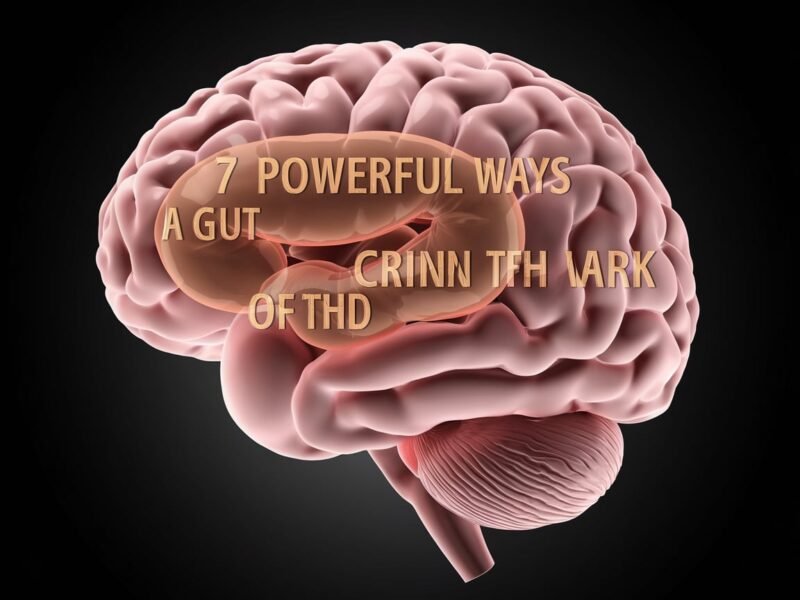Introduction
The healthcare landscape is undergoing a significant transformation, driven largely by advancements in technology. Among these, Artificial Intelligence (AI) and machine learning (ML) are at the forefront, reshaping how healthcare professionals interact with data, make decisions, and ultimately care for patients. As electronic health records (EHRs) become ubiquitous, the integration of AI and ML is not only enhancing data management but also facilitating a more patient-centered approach to care. This article explores the intersection of AI, EHRs, and patient-centered care, highlighting their collective impact on healthcare delivery.
Understanding Electronic Health Records (EHRs)
What Are EHRs?
Electronic Health Records (EHRs) are digital versions of patients’ paper charts. They contain comprehensive information about a patient’s medical history, including:
- Demographics
- Medical conditions
- Medications
- Allergies
- Laboratory results
- Imaging studies
- Treatment plans
EHRs are designed to streamline the flow of information between healthcare providers, ensuring that patient data is easily accessible and up-to-date.
The Evolution of EHRs
EHRs have evolved from simple digital storage systems to sophisticated platforms that integrate various data sources. This evolution has been fueled by federal incentives and the push for improved healthcare outcomes. By 2022, nearly 86% of office-based physicians had adopted EHR systems, highlighting their importance in modern healthcare.
The Role of AI and Machine Learning in EHRs

Enhancing Data Analysis
AI and ML algorithms can analyze vast amounts of data contained within EHRs quickly and accurately. These technologies can identify patterns, predict outcomes, and provide actionable insights that human practitioners might overlook. For example:
- Predictive Analytics: ML models can predict hospital readmissions by analyzing patient demographics, medical history, and treatment plans.
- Natural Language Processing (NLP): AI can process unstructured data, such as physician notes, to extract relevant information for better patient assessments.
Improving Clinical Decision Support
AI-powered clinical decision support systems (CDSS) integrated within EHRs can assist healthcare providers in making informed decisions. These systems can:
- Recommend evidence-based treatment options.
- Alert providers to potential drug interactions or allergies.
- Provide reminders for preventive care, such as vaccinations and screenings.
Streamlining Administrative Tasks
AI can automate many administrative tasks associated with EHR management, such as scheduling, billing, and coding. By reducing the administrative burden on healthcare providers, AI allows them to focus more on patient care.
The Shift Toward Patient-Centered Care

Defining Patient-Centered Care
Patient-centered care is a model of care that emphasizes the patient’s preferences, needs, and values. It involves engaging patients in their own care decisions, fostering open communication, and providing comprehensive support throughout their healthcare journey.
The Impact of AI and EHRs on Patient-Centered Care
- Personalized Treatment Plans: AI algorithms can analyze data from EHRs to create tailored treatment plans based on individual patient characteristics. This personalization improves patient satisfaction and outcomes.
- Enhanced Patient Engagement: EHRs equipped with patient portals allow individuals to access their health information, schedule appointments, and communicate with healthcare providers. AI can further enhance these portals by providing personalized health recommendations and reminders.
- Informed Decision-Making: By integrating AI insights, patients can make better-informed decisions about their health. For instance, if a patient is diagnosed with a chronic condition, AI can offer information on lifestyle changes and treatment options tailored to their specific situation.
- Holistic View of Patient Health: EHRs can aggregate data from various sources, including wearable devices and home monitoring systems. AI can analyze this data to provide healthcare providers with a holistic view of a patient’s health, facilitating more comprehensive care.
Challenges and Considerations

Data Privacy and Security
As the use of AI and EHRs increases, concerns regarding data privacy and security also grow. Protecting sensitive patient information is paramount, and healthcare organizations must implement robust security measures to prevent data breaches.
Interoperability
For AI and ML technologies to be fully effective, EHR systems must be interoperable. This means that different EHR systems should be able to share and access patient data seamlessly. Achieving interoperability remains a significant challenge in healthcare.
Training and Adoption
Healthcare professionals need adequate training to effectively use AI and ML tools within EHR systems. Additionally, there may be resistance to adopting new technologies, which can hinder their potential benefits.
Future Trends in AI, EHRs, and Patient-Centered Care

- Greater Use of Telemedicine: The rise of telehealth services will continue to integrate AI and EHRs, providing patients with convenient access to care while maintaining their medical history in one place.
- Real-Time Data Monitoring: With advancements in wearable technology, real-time health monitoring will become increasingly common. AI can analyze this data instantaneously, allowing for proactive interventions.
- Enhanced Predictive Capabilities: As AI models improve, their predictive capabilities will become more sophisticated, enabling healthcare providers to identify potential health issues before they escalate.
- Integrating Social Determinants of Health: Future AI systems will likely incorporate social determinants of health (e.g., socioeconomic status, education, and environment) into their analyses, further personalizing care.
Conclusion
The integration of AI and machine learning into electronic health records is revolutionizing healthcare delivery, moving us toward a more patient-centered approach. By leveraging these technologies, healthcare providers can enhance their decision-making processes, streamline operations, and ultimately improve patient outcomes. While challenges remain, the potential benefits of AI in healthcare are vast, promising a future where patient care is more personalized, efficient, and effective.
FAQs
1. What are Electronic Health Records (EHRs)?
EHRs are digital versions of patients’ paper charts that contain comprehensive information about their medical history and care.
2. How do AI and machine learning enhance EHRs?
AI and ML can analyze vast amounts of data, improve clinical decision support, and streamline administrative tasks within EHR systems.
3. What is patient-centered care?
Patient-centered care emphasizes the patient’s preferences, needs, and values, engaging them in their care decisions.
4. What challenges do AI and EHRs face in healthcare?
Challenges include data privacy and security concerns, interoperability issues, and the need for training and adoption among healthcare professionals.
5. What future trends can we expect in AI and EHRs?
Future trends include greater telemedicine integration, real-time data monitoring, enhanced predictive capabilities, and incorporating social determinants of health into analyses.




Great content! Super high-quality! Keep it up!
I enjoyed reading your piece and it provided me with a lot of value.
Thank you for your help and this post. It’s been great.
You helped me a lot with this post. I love the subject and I hope you continue to write excellent articles like this.
Thanks for posting. I really enjoyed reading it, especially because it addressed my problem. It helped me a lot and I hope it will help others too.
Thank you for your articles. They are very helpful to me. Can you help me with something?
Thank you for your help and this post. It’s been great.
I’d like to find out more? I’d love to find out more details.
Thank you for writing this post. I like the subject too.
Good web site! I truly love how it is easy on my eyes and the data are well written. I am wondering how I could be notified whenever a new post has been made. I’ve subscribed to your RSS which must do the trick! Have a nice day!
Thank you for sharing this article with me. It helped me a lot and I love it.
I want to thank you for your assistance and this post. It’s been great.